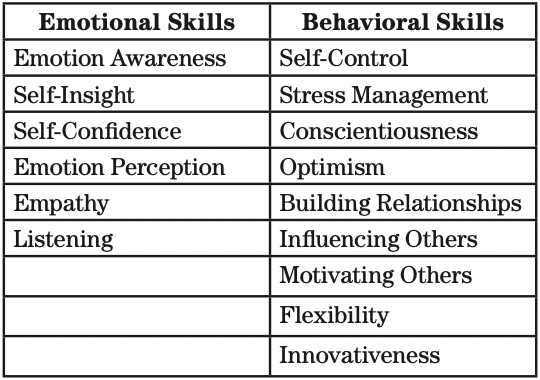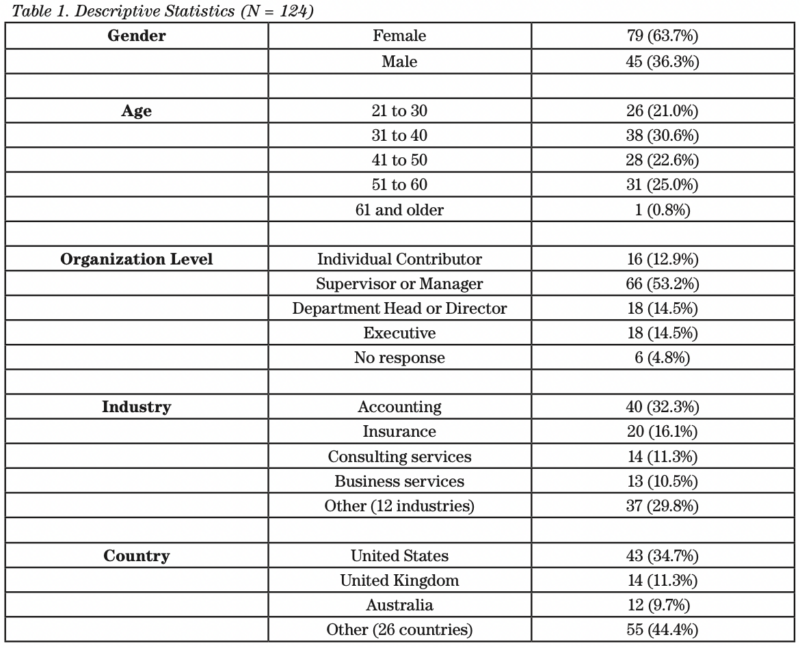This Technical Report provides research evidence for the reliability and validity of the Behavioral EQ Model™ and questionnaire. The questionnaire is used as the input to generate various profiles, including the Behavioral EQ Multi-Rater Profile and Self-Perception Profile. This report is intended to be a companion to other facilitator materials, notably the Developing Behavioral EQ™ Facilitator Guide. By reviewing this report, you will understand the important role that research plays in the model. More importantly, you will gain an understanding of exactly how TRACOM ensures that our profiles are accurate and dependable.
Emotional Intelligence
When you think of an intelligent person, what comes to mind? People often say things like “the ability to solve problems, and think quickly and rationally.” This is understandable since psychologists have traditionally focused on cognitive aspects of intelligence. At some point in your life, maybe you have undergone an IQ test. “IQ” stands for “intellectual quotient,” the numeric measurement of intelligence. These tests provide a general IQ score as well as scores on specific abilities related to verbal, mathematical, and visual/spatial reasoning.
The Behavioral EQ Model was developed to align with four principles:
- Emotional Intelligence Predicts Performance
- Emotional Intelligence is Different from Behavioral Intelligence
- Emotional Intelligence Models need Greater Focus
- Multi-rater Feedback is Critical
Testing
We thoroughly reviewed over twenty years’ worth of research in the field, relying heavily on recent meta-analyses for our conclusions. We concluded that fifteen skills met our criteria for inclusion in the model. Six of these are emotional skills and the remainder are behavioral skills.

For the initial round of testing, the items were administered to 1,415 adults – the vast majority of whom (over 98%) were currently working either full- or part-time. This administration presented the items in a self-rating only format; that is, people rated themselves on each item. This format was ideal for generating the first version of the model prior to further testing. Problematic items were identified based on reliability analyses, factor analysis, item-total correlations, item correlations, subgroup differences, and extreme means. These analyses yielded a 75-item scale for further testing.
For the second round of testing, we administered the 75-item version of the questionnaire to 124 employed individuals, along with their rater groups – each person had at least three raters. These individuals were existing clients of TRACOM and were solicited to participate through email requests. Demographic characteristics of the sample were as follows in Table 1.

Based on reliability analyses, factor analysis, item-total correlations, item correlations, subgroup differences, and extreme means, we found these 75 items were reliable and valid. To create an efficient final measure, while still maintaining reliability and validity, we were able to reduce the number of items to 60 (four items measuring each of the 15 scales). The reliability and validity analyses described later in this report are based on these final 60 items.
To learn more about the study, click the research paper provided.
Summary
Emotional Intelligence (EQ) boosts leadership performance, sales results and recruiting efforts. TRACOM’s Behavioral EQ Model reflects the latest research in both brain function and performance. It focuses on the most important elements of emotional intelligence and those that can be successfully developed.
The modern workplace calls for a new kind of Emotional Intelligence model focused on the most practically important aspects of EQ and focused specifically on modern workplace challenges. Research shows that the behavioral elements of EQ — the aspects of the model that focus on our actions — lead to the most visible and meaningful improvements. These same behavioral aspects have proven to be the best predictors of job performance and success.
EQ is one of the three elements of Social Intelligence, along with Behavioral Style and Mindset. Understanding and using Social Intelligence increases effectiveness and productivity.
To learn more about EQ, click here.

 New Horizons
New Horizons
 Project Management Academy
Project Management Academy
 Six Sigma Online
Six Sigma Online
 TCM Security
TCM Security
 TRACOM
TRACOM
 Velopi
Velopi
 Watermark Learning
Watermark Learning
 Login
Login

